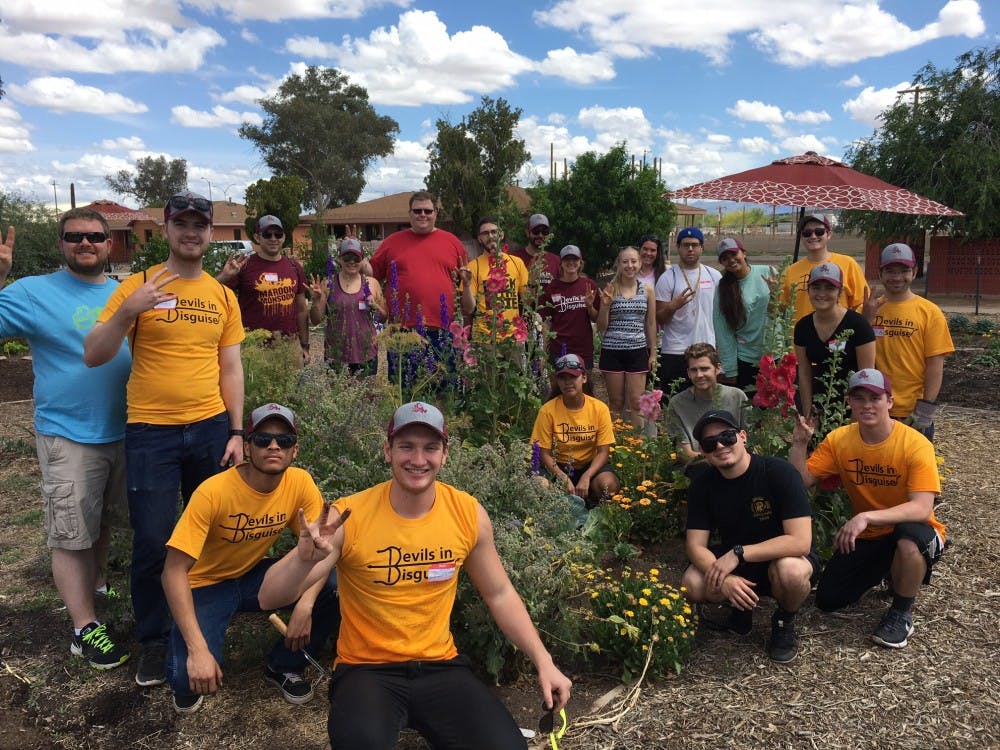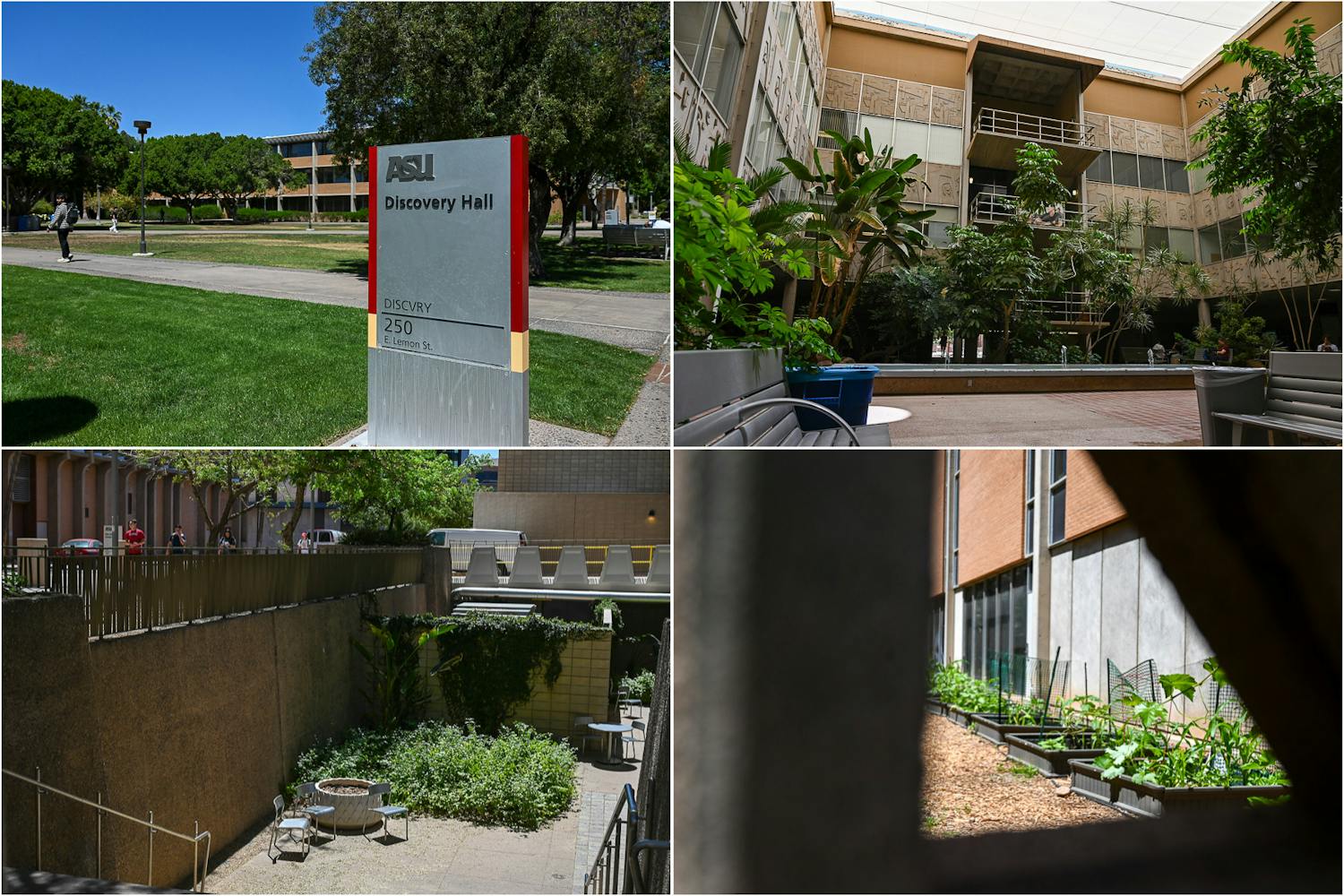From producing citrus trees and carrots to pumpkins and watermelons, ASU’s Poly Gardens envelops both a passion for growing food and a connection to surrounding nature.
Susan Norton, program manager with student, staff and faculty engagement in Sustainability, initially created this outlet as a way for students to practice what they are learning at ASU in an outdoor lab setting. In this atmosphere, students can build relationships with each other and experience growing local, organic food.
Poly Gardens extends past ASU and into the community by supplying a local food bank with produce. Just last year, 300 pounds of produce were grown and delivered to Christian Community Food Bank in Chandler.
In addition to impacting local food banks, Poly Gardens also welcomes Ruth Biggs, a 5th and 6th grade science teacher at ASU Preparatory STEM Academy, and her 6th grade students to the gardens.
The class holds a “salad day” where the students create their own salads from the produce they cultivated in their plots. Biggs said that the students go home feeling a sense of pride from growing their own food and enjoy experiencing the different aspects of sustainability.
Biggs described how observing the garden’s developments and changes adds to the excitement for the younger students.
“The thing that they love about the garden is every time we go, it changes,” Biggs said. “Right now we are just barely planting and to change from just that dirt, weedy, messy dirt and just have it be fruitful and grow and thrive. I love that for them and how they get excited.”
Sustainability serves as one of the top priorities at the gardens. Students are taught the importance of composting, utilizing organic materials, managing the land wisely and remaining as environmentally friendly as possible.
Norton suggests growing local produce to minimize the use of unnecessary resources.
“When you buy all of your food in grocery stores, that food is shipped from thousands of miles away many times,” Norton said. “It’s refrigerated in trucks, it’s refrigerated in storage units, it’s brought to the grocery store with air conditioning (and) it’s resource intensive with electricity, water usage, things like that. We are really minimizing and utilizing resources when you grow local.”
Poly Gardens impacts a larger ASU campus community because of its capacity. The garden consists of twelve 25 feet by 25 feet plots. However, according to Norton, a garden of this size proves challenging to maintain.
“It’s 24/7," Norton said. "It’s sort of like keeping your house clean. If you don’t do it frequently, then all the sudden months later it’s just a mess and a lot harder to get good results with. But if you keep at it a little bit at a time, you stay on top of things and your produce is happier and it grows better."
Even with the maintenance required to flourish a garden, the end product proves to be worth the hard work.
Laurie Bitz, medical assistant in ASU Health Services, explained the type of cleansing effect gardening has on her.
“Having the satisfaction of growing your own organic produce is just a benefit to your health,” Bitz said. “There’s kind of a mental health wellness to it. It’s very therapeutic to go out and pull weeds and just kind of spend time in that garden.”
Norton went on to describe her favorite part of overseeing Poly Gardens.
“I guess the thing that I love the most is just the absolute connection to nature,” Norton said. “The scents and the smells and the textures and the touch and the feel of just engaging that closely with nature is rewarding to me.”
Reach the reporter at esounart@asu.edu or follow @emmasounart on Twitter.
Like The State Press on Facebook and follow @statepress on Twitter.




